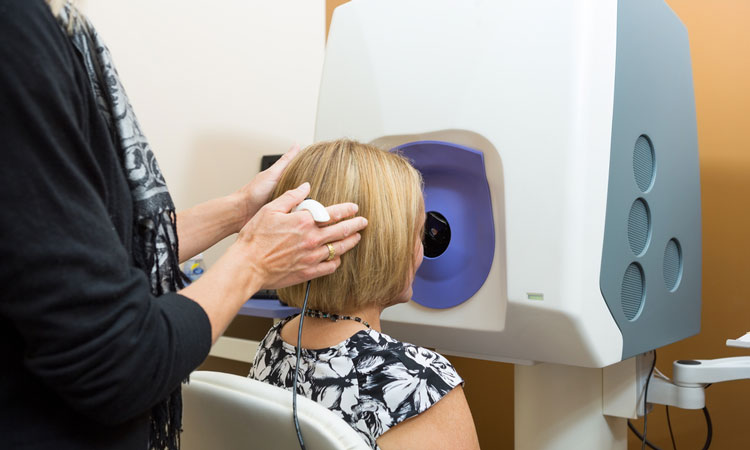Big Data and AI provide better diagnosis and treatment
Posted: 26 November 2018 | European Pharmaceutical Review | No comments yet
MedUni Vienna researchers have developed a way to use retinal imaging to diagnose diabetes, explaining how the technique could be used for other conditions…


MedUni Vienna’s Department of Ophthalmology and Optometrics has revealed its progress in using digital retinal screening to diagnose patients with diabetes.
“Exactly one year ago, we spoke about the fact that, in future, it will be possible to diagnose diabetes from the eye using automatic digital retinal screening, without the assistance of an ophthalmologist – 12 months on, MedUni Vienna is right in the middle of this digital revolution,” said Dr Ursula Schmidt-Erfurth, Head of MedUni Vienna’s Department of Ophthalmology and Optometrics.
One of the latest developments is automatic diabetes screening, which was recently implemented at MedUni Vienna.
“Patients flock to the Department to undergo this retinal examination to detect any diabetic changes. It takes just a few minutes and is completely non-invasive,” reported Dr Schmidt-Erfurth. Essentially this technique can detect all stages of diabetic retinal disease – high-resolution digital retinal images with two million pixels are taken and analysed within seconds – but Big Data offers even more potential: it is already possible to diagnose an additional 50 other diseases in this way.
The Division of Cardiology led by Dr Christian Hengstenberg within the Department of Medicine II is working on how digital retinal analysis can also be used in future for the early diagnosis of cardiovascular diseases.
“This AI medicine is ‘super human’,” emphasises Dr Schmidt-Erfurth. “The algorithms are quicker and more accurate. They can analyse things that an expert cannot detect with the naked eye.”
And yet the commitment to Big Data and Artificial Intelligence is not a plea for medicine without doctors, which some experts predict for the not-to-distant future. “What we want are ‘super doctors’, who are able to use the high-tech findings to make the correct, individualised therapeutic decision for their patients, in the spirit of precision medicine, rather than leaving patients on their own.”
However, it is not only in the diagnosis of diseases that Artificial Intelligence and Big Data, plus virtual reality, provide better results. “We are already performing digitised operations with support from Artificial Intelligence. This involves projecting a virtual and precise image of the area of the eye being operated on onto a huge screen – and the surgeon then performs the operation with a perfect view “on screen” as it were, while actually operating on the patient with a scalpel.”
“Deep Learning is a new AI technique that produced the first breakthrough in automatic image recognition in 2012. Since 2013, the Medical University of Vienna has been developing AI methods to extract different retinal structures from a three-dimensional image within a matter of minutes. Other AI techniques analyse the changes in these structures over time. By knowing the disease courses of thousands of patients, our AI methods can predict the individual course for each new patient. In the future, such AI applications will serve as decision-support systems to help ophthalmologists plan a personalised treatment for each patient,” said Dr Amir Sadeghipour from MedUni Vienna’s Department of Ophthalmology and Optometrics, outlining the technical potential.
Dr Martin Hülsmann, cardiologist at MedUni Vienna/Vienna General Hospital has been working on clinical studies with retinal experts for many years. He is interested in how the algorithms can be used to provide an accurate assessment of cardiovascular status without the need for invasive procedures, based solely on vascular changes in the retina: “It is possible to identify hypertension, diabetes and even the future risk of suffering a heart attack or stroke on an individual and accurate basis. This technology therefore offers a great contribution to the diagnosis of cardiovascular diseases, long before any negative events occur. This is the level of safety we want for thousands of patients, even in routine daily clinical practice. It allows personalised precision medicine that is quick, cost-effective and conservative and, at the same time, guarantees the highest quality.”
The research will be presented at the ART-2018 Specialist Meeting on new developments in retinal therapy, which is to take place in December this year.
Related topics
Analytical techniques, Artificial Intelligence, Big Data, Clinical Development, Research & Development (R&D)
Related organisations
Related people
Dr Amir Sadeghipour, Dr Christian Hengstenberg, Dr Ursula Schmidt-Erfurth









